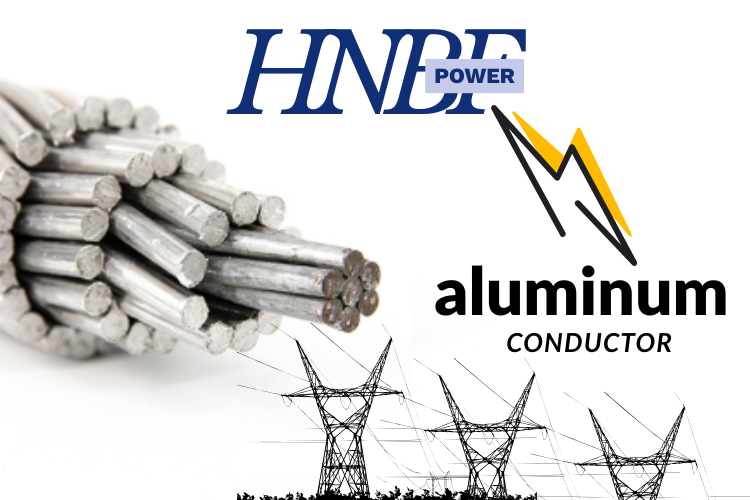-
Fil d’actualités
- EXPLORER
-
Pages
-
Groupes
-
Evènements
-
Reels
-
Blogs
-
Offres
-
Emplois
-
Courses
Aluminum Conductor in Power Grids: Role, Benefits, and Buying Guide

In modern power transmission systems, aluminum conductors play a crucial role in ensuring the efficient and reliable flow of electricity across vast distances. Known for their excellent conductivity, lightweight nature, and cost-effectiveness, aluminum conductors are widely used in both overhead and underground power grids. HNBFpower, a trusted name in power transmission solutions, provides high-quality aluminum conductors designed to meet global energy demands with superior performance and durability.
The Role of Aluminum Conductors in Power Grids
Aluminum conductors are the backbone of electrical transmission lines. Their primary role is to carry electrical current from power generation plants to substations and then distribute it to various regions. The material’s light weight reduces the mechanical load on towers and poles, allowing for longer spans between supports and lower installation costs.
Additionally, aluminum’s corrosion resistance makes it ideal for outdoor applications in diverse environmental conditions, from coastal regions to industrial zones. This reliability helps maintain stable power delivery with minimal maintenance requirements.
Key Specifications of Aluminum Conductors
Aluminum conductors come in various types, each designed to suit specific transmission needs. Some common types include:
-
AAC (All Aluminum Conductor) – Made entirely of aluminum strands, ideal for short distances and urban networks.
-
AAAC (All Aluminum Alloy Conductor) – Enhanced strength and corrosion resistance for medium spans.
-
ACSR (Aluminum Conductor Steel Reinforced) – Combines aluminum strands with a steel core for extra tensile strength, perfect for long-distance transmission lines.
-
ACAR (Aluminum Conductor Alloy Reinforced) – Provides high conductivity and better mechanical properties.
Typical specifications include:
-
Conductor size range: 10 mm² to 1250 mm²
-
Operating temperature: Up to 90°C
-
Tensile strength: Depends on alloy type and construction
-
Resistance: Low electrical resistance for efficient current flow
Characteristics of Aluminum Conductors
-
Lightweight: About one-third the weight of copper, reducing tower load and installation effort.
-
High Conductivity: Efficient current transmission with minimal power loss.
-
Corrosion Resistance: Naturally forms a protective oxide layer against environmental exposure.
-
Cost-Effective: More affordable than copper, lowering overall project costs.
-
Durability: Long lifespan even under challenging outdoor conditions.
-
Flexibility: Suitable for different designs, voltage levels, and terrain conditions.
Advantages of Using Aluminum Conductors in Power Grids
-
Efficiency and Reliability: Aluminum ensures steady electrical flow with minimal energy loss.
-
Reduced Infrastructure Costs: Lightweight conductors allow for smaller and more economical support structures.
-
Longer Transmission Spans: Due to high strength-to-weight ratio, aluminum conductors can cover longer distances without excessive sagging.
-
Ease of Handling and Installation: Flexible and easy to transport, saving time during installation.
-
Eco-Friendly: Aluminum is recyclable, contributing to sustainable energy infrastructure.
How to Choose and Buy Aluminum Conductors
When selecting an aluminum conductor for your power grid project, consider the following factors:
-
Voltage Level: Determine the transmission voltage to select the right conductor type (AAC, AAAC, ACSR, etc.).
-
Environmental Conditions: For coastal or industrial areas, corrosion-resistant alloys are preferred.
-
Span Length and Load Requirements: Choose steel-reinforced or alloy conductors for long-distance lines with high mechanical stress.
-
Budget and Maintenance: Balance cost with long-term performance and maintenance needs.
-
Supplier Reliability: Always purchase from a certified and experienced manufacturer like HNBFpower, known for precision-engineered conductors that meet international quality standards.
Conclusion
Aluminum conductors are a key component in building efficient, durable, and cost-effective power transmission systems. Their balance of conductivity, strength, and affordability makes them an indispensable part of modern energy infrastructure. With HNBFpower, you can trust in high-quality aluminum conductors engineered for performance, safety, and long-term reliability empowering your grid with dependable energy flow from generation to consumption.
- Art
- Causes
- Crafts
- Dance
- Drinks
- Film
- Fitness
- Food
- Jeux
- Gardening
- Health
- Domicile
- Literature
- Music
- Networking
- Autre
- Party
- Religion
- Shopping
- Sports
- Theater
- Wellness


